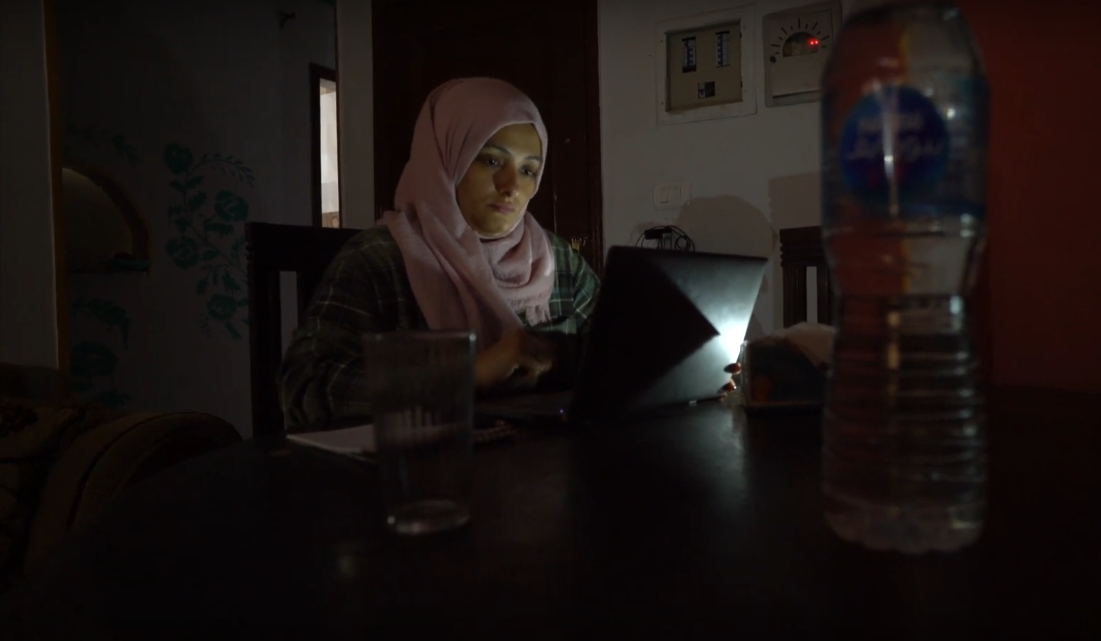To Huda Al-Sarari, the Martin Ennals Award means much more than praise for her efforts to expose a network of secret foreign-run prisons in Yemen where victims are subjected to arbitrary detention and torture.
“Women human rights activists are subject to a number of violations. I have been threatened with death myself, one of my sons has been murdered, the other one has been threatened,” the Yemeni lawyer and activist said at the award ceremony in Geneva, Switzerland, in February.
“And this is why this Martin Ennals Award will grant me a certain level of protection, and maybe through this award I’ll be able to continue with my work and continue defending human rights, and protect, defend, support the mothers of these prisoners.”
Huda Al-Sarari went on that evening to be named the 2020 Martin Ennals Award Laureate, and her hope that the prize will allow her to stay the course is exactly its intention: the Martin Ennals Award is given to people under threat as a consequence of their contributions to human rights — and who stand to find a measure of safety in the resulting international recognition.
Huda was honored alongside finalists Norma Librada Ledezma of Mexico and Sizani Ngubane of South Africa, who have each labored at great risk to ensure that women have access to justice.
“Let’s get really loud about human rights, and let’s be smart about how we send these messages in an ever noisier world,” said Isabel de Sola, director of the Martin Ennals Foundation, at the ceremony. “Let’s make that our first objective: that we get really loud and that our support for Huda, Norma and Sizani is heard where it needs to be heard around the world.”
Huda, Norma and Sizani were all featured in short films produced for the 2020 award cycle, offering a glimpse of their inspiring resolve to change their communities for the better. Watch the portraits below or on the Martin Ennals Award’s YouTube channel.
“I will continue fighting…for a world of freedom”
Finalist Norma Librada Ledezma is the founder of Justicia Para Nuestras Hijas (Justice for Our Daughters) and has supported more than 200 investigations into cases of femicide, enforced disappearance and human trafficking in Chihuahua, Mexico. She became a human rights defender following the murder of her own daughter, Paloma, in 2002.
“The justice that my daughter didn’t get along with all those women and girls, I don’t think it is something I’ll be able to see with my own eyes. And so I will fight,” she said at the ceremony. “I will continue fighting despite my situation, despite the threats, for a life of freedom, for a world of freedom, for a world in which women can live free.”
“Despite everything, I have given up my own freedom and I will continue to fight day and night so all Palomas can go back to their homes.”
“Our lives were threatened like there was no tomorrow”
Sizani Ngubane is an advocate for land rights and education access for women in rural areas of South Africa. She also has fought to end the practice of ukuthwala, which is the abduction and forced marriage of young girls and women.
“It was an achievement for us to be able to walk the journey with the women through women’s human rights workshops until they themselves said, ‘This must stop,’” Sizani recalled at the ceremony. “It was not easy to stop it because even the traditional leaders were getting worried about these women who come and hold meetings under the trees in big numbers….And our lives were threatened like there was no tomorrow.”
“But because we wanted the community to accept what they were doing was unconstitutional we just continued until the practice was eradicated in 2015.”
“I don’t think that our work as defenders of human rights will ever stop”
Despite the dangers they face, all three women say that they are committed to their work.
“There will always be violations,” as Huda told the filmmakers. “Even if those violations stopped, there should be some recourse for the victims. There should be punishment for those who violate human rights. Then we will have reached another phase of our work, of reparations for the victims, of punishment for violators, and bringing them to justice for what they did. The truth for innocent victims.”
“Hence, I don’t think that our work as defenders of human rights will ever stop. No way.”
The Martin Ennals Award
The award is named after Martin Ennals (1927-1991), a human rights activist who served as the first secretary general of Amnesty International and co-founded HURIDOCS as well as the organizations ARTICLE 19 and International Alert.
The 2020 award ceremony took place on 19 February 2020 at an event hosted by the City of Geneva. The winning laureate receives 50,000 Swiss francs to support her work, while the two finalists receive 20,000 Swiss francs.
HURIDOCS was once again humbled to be a member of the jury, alongside:
